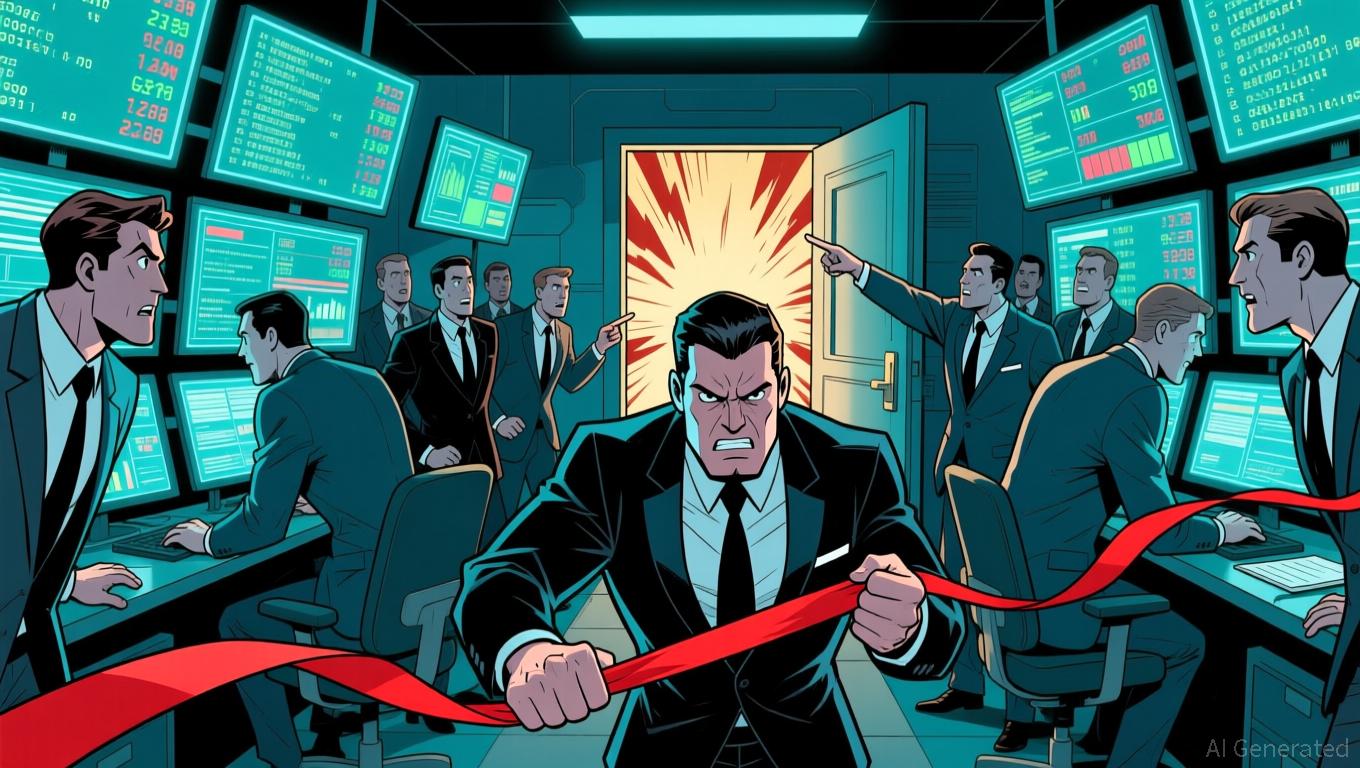Bitcoin News Update: Post-Halving Challenges and Rising Energy Expenses Propel Consolidation in Bitcoin Mining
- Bitcoin mining faces intense consolidation as post-halving pressures and energy costs eliminate smaller operators, per Marathon CEO. - JPMorgan highlights U.S. miners' energy-efficient infrastructure as prime M&A targets for hyperscalers and AI firms seeking scale. - Greenidge's modular Pod X technology boosts mining efficiency by 35%, positioning it as a leader in capital-efficient operations. - Bernstein identifies Riot Platforms as top consolidator, citing its aggressive $2B+ acquisition attempts to s
The
According to JPMorgan analysts, publicly traded Bitcoin miners in the U.S.—which together utilize up to 5 gigawatts of electricity and could tap into another 2.5 gigawatts—are becoming prime acquisition targets for hyperscalers and AI companies eager for energy-efficient infrastructure,
Brokerage Bernstein has identified Riot Platforms as the leading consolidator, pointing to its financial resources to pursue acquisitions,
Innovation is also transforming the sector. Greenidge Generation Holdings Inc. has recently launched the Greenidge Pod X, a modular mining solution aimed at boosting efficiency and operational uptime,
Nonetheless, challenges persist. While JPMorgan expects M&A activity to pick up speed, analysts warn that regulatory hurdles and fluctuations in the energy market could complicate transactions,
At present, the industry's future rests on two key factors: securing affordable, scalable energy and adapting to rapidly changing technological and financial conditions. As the CEO of Marathon put it, "The next cycle will separate the resilient from the obsolete."
Disclaimer: The content of this article solely reflects the author's opinion and does not represent the platform in any capacity. This article is not intended to serve as a reference for making investment decisions.
You may also like
Ethereum Updates Today: DeFi's Quest for Stability: Is It Buterin's Dream or a Traditional Finance Trap?
- Ethereum co-founder Vitalik Buterin declares DeFi "finally viable" as a savings tool, citing improved security and maturity since 2019-2020. - He advocates "low-risk DeFi" as Ethereum's foundation, comparing it to Google Search's role in Alphabet's dominance. - Institutional confidence grows with ARK Invest's ETH exposure and whale accumulations, while TVL declines and legal uncertainties persist. - Critics warn stability-focused DeFi risks becoming a "TradFi Trojan horse," stifling innovation despite bu

Bitcoin News Today: Bitcoin Faces $108K Test: Surge Ahead or Setback?
- Bitcoin hovers near $104.5K with technical indicators signaling potential breakout above $108K, driven by ETF inflows and reduced miner selling pressure. - AlphaPepe (ALPE) attracts 3,500+ holders via BNB Chain presale, offering staking rewards and 10% referral incentives amid SHIB holders' search for high-potential meme tokens. - Shiba Inu expands utility through telecom node partnerships, enabling SHIB-based payments and rewards, aiming to solidify real-world adoption beyond speculative trading. - Cana

Boring Co.'s Hazardous Tunnels Face Off Against OSHA's Weak Oversight
- The Boring Co. was fined $500K for illegally dumping toxic drilling fluids in Las Vegas, damaging infrastructure and raising health risks. - Nevada OSHA faced scrutiny over withdrawn citations due to procedural errors and missing records, sparking transparency concerns. - The Governor’s Office denied political interference but deleted a meeting record, deepening skepticism about regulatory independence. - Repeated environmental and safety violations highlight ongoing regulatory challenges for the Boring
Boring Co. Penalties Highlight the Challenge of Balancing Safety with Innovation
- The Boring Company faces a $493,297 fine for illegally dumping toxic drilling fluids into Las Vegas manholes, marking the largest penalty in Nevada's CCWRD history. - Nevada OSHA withdrew 2023 safety citations after legal review, citing unmet requirements for valid violations, raising concerns about regulatory enforcement consistency. - Critics highlight political pressure risks and legal loopholes, including Anti-SLAPP law tactics, that could hinder future accountability for high-profile tech ventures.